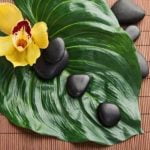Feng Shui, an ancient Chinese practice, is the art of creating harmony and balance in a space to promote positive energy flow. When it comes to bedroom design, understanding the principles of Feng Shui can greatly enhance your overall well-being and create a peaceful oasis for rest and relaxation. In this article, we will explore the concept of Feng Shui, its origins, and how it relates specifically to bedroom design.
Originating in ancient China over 3,000 years ago, Feng Shui is based on the belief that our physical environment greatly affects our emotional and spiritual well-being. The primary goal of Feng Shui is to achieve balance and harmony by arranging and organizing elements in a space in accordance with specific principles. Applying these principles to bedroom design can create a sanctuary that promotes restful sleep, rejuvenation, and positive energy flow.
When designing a bedroom with Feng Shui principles in mind, one essential aspect is the placement of furniture and creating a harmonious layout. The positioning of the bed is of utmost importance as it symbolizes restfulness and represents personal power. By placing the bed in an ideal position based on Feng Shui guidelines, you can optimize energy flow and create a sense of grounding and stability within the room.
In addition to furniture arrangement, color psychology plays a significant role in creating a balanced Feng Shui bedroom. Different colors have different energies that can impact our mood and emotions. By choosing specific colors that align with Feng Shui principles – such as calming blues for relaxation or passionate reds for love – you can enhance the energy within the space. Understanding these color associations will allow you to create a soothing atmosphere that supports tranquility and emotional well-being.
With a solid understanding of what Feng Shui is and how it relates to bedroom design, you can begin to apply these principles to create your own oasis of harmony within your personal sleeping space. By incorporating balanced layouts, mindful furniture placement, harmonious colors, and other essential elements, you can transform your bedroom into a sanctuary that promotes restful sleep and overall well-being.
In the following sections of this article, we will delve deeper into specific aspects of Feng Shui in a bedroom to provide you with practical tips and guidance for creating your ideal peaceful retreat.
Creating a Harmonious Layout
When it comes to creating a harmonious bedroom design using Feng Shui principles, the placement of the bed and furniture arrangement plays a crucial role. According to Feng Shui beliefs, the bed is considered the most important piece of furniture in the bedroom, as it symbolizes rest, rejuvenation, and overall well-being. Therefore, it is essential to position the bed in a way that promotes positive energy flow.
Ideally, the bed should be placed diagonally across from the entrance of the room, with a solid wall behind it for support. This positioning allows you to see anyone entering the room while lying in bed without being directly aligned with their energy. It also provides a sense of security and stability. If placing the bed diagonally is not possible, placing it against a solid wall will still provide a similar sense of support.
In terms of furniture arrangement, it is important to create a sense of balance and symmetry in the bedroom. Avoid placing furniture in direct alignment with the entrance or doorway, as this can create stagnant or rushed energy. Instead, aim for an open and spacious layout where energy can flow freely throughout the room.
Additionally, consider incorporating nightstands on both sides of the bed to promote equality between partners and create a balanced atmosphere. These nightstands can also serve practical purposes by providing storage space or acting as decorative elements.
By carefully considering the placement of your bed and arranging your furniture in accordance with Feng Shui principles, you can create a harmonious layout that encourages positive energy flow and supports restful sleep in your bedroom.
Choosing the Right Colors
Color plays a crucial role in creating a harmonious and balanced environment in Feng Shui bedroom design. Each color has its unique energy that can influence our emotions, mood, and overall well-being. By understanding the principles of color psychology in Feng Shui, we can choose the right colors to promote relaxation, love, and tranquility in our bedroom.
How different colors impact the overall energy in the bedroom
In Feng Shui, different colors are associated with specific energies and elements. For example, blue is often associated with calmness and serenity, making it an ideal color choice for promoting relaxation and peaceful sleep. Green represents growth and renewal, bringing a sense of freshness and vitality to the bedroom. On the other hand, red symbolizes passion and desire but should be used sparingly as it can create an overly stimulating environment.
Suggesting specific colors that promote relaxation, love, and tranquility according to Feng Shui principles
To promote relaxation in the bedroom, soft pastel colors like lavender or light pink are recommended. These colors create a soothing atmosphere conducive to restful sleep. For those seeking more love and romance in their relationship, using shades of pink or red accents can enhance intimacy. However, it’s important to maintain a balance and avoid overpowering the room with these strong colors.
Tranquility can be achieved by incorporating shades of green or soft blue into the bedroom decor. These colors are believed to have a calming effect on the mind and body, reducing stress and promoting inner peace. Additionally, earthy tones like beige or brown help create a grounding effect in the space.
Overall, it’s essential to choose colors that resonate with your personal preferences while keeping in mind their corresponding energies according to Feng Shui principles. Experimenting with different color combinations can help you find the perfect palette that brings harmony and positive energy into your bedroom design.
Remember, the goal is to create a space that supports relaxation, love, and tranquility, so it’s important to choose colors that align with these intentions. By employing the principles of color psychology in Feng Shui bedroom design, you can transform your sleeping sanctuary into a peaceful oasis that nurtures your well-being.
Balancing Yin and Yang
Incorporating masculine and feminine elements in the bedroom is an essential aspect of creating a balanced and harmonious environment according to Feng Shui principles. The concept of yin and yang plays a significant role in creating positive energy flow, and it is important to strike a balance between these two energies in the bedroom.
The yin energy represents femininity, softness, and relaxation, while the yang energy signifies masculinity, strength, and activity. By incorporating both of these energies, you can create an environment that promotes harmony and supports your well-being.
To incorporate masculine elements in the bedroom, consider adding earthy tones, sturdy furniture, and geometric patterns. Earthy tones like brown or beige can provide a grounding effect while conveying a sense of stability. Sturdy furniture made from wood or metal can add a strong and structured element to the room. Geometric patterns such as stripes or chevrons can introduce a more masculine touch.
On the other hand, to incorporate feminine elements in the bedroom, opt for soft colors like pink or pastels. These hues evoke feelings of tranquility and promote relaxation. Adding flowing fabrics like curtains or drapes can also create a softer atmosphere. Decorative touches such as floral patterns or delicate artwork can further enhance the feminine energy in the space.
Creating balance between these two energies is key to achieving a harmonious environment in your bedroom. It is important not to overwhelm the room with too much of one energy over the other. Harmonizing these elements will help create an oasis of serenity that promotes restful sleep and overall well-being.
| Elements | Characteristics |
|---|---|
| Masculine | Strength, activity |
| Feminine | Softness, relaxation |
| Colors | Earthy tones (brown, beige), Soft colors (pink, pastels) |
| Furniture | Sturdy furniture made from wood or metal |
| Patterns and Decorations | Geometric patterns, Flowers, Floral patterns or delicate artwork |
Optimizing Air Quality and Natural Lighting
Creating a peaceful and balanced environment in a bedroom goes beyond just furniture placement and color choices. Optimizing air quality and natural lighting are essential elements of Feng Shui that can greatly impact the energy flow in the space. In this section, we will explore the significance of good air quality and abundant natural light in a Feng Shui bedroom, as well as provide practical tips on how to improve both aspects for better energy and overall well-being.
The Significance of Good Air Quality
Good air quality is crucial for promoting a healthy and harmonious environment in a Feng Shui bedroom. Poor air circulation can lead to stagnant energy, which can negatively affect sleep quality and overall well-being. To optimize air quality in your bedroom, consider the following:
- Keep windows open: Open your windows regularly to allow fresh air to circulate in the room. This helps remove any stale or stagnant energy.
- Use natural materials: Opt for natural materials such as cotton or bamboo for bedding, curtains, and rugs. These materials are breathable and promote better air quality compared to synthetic alternatives.
- Invest in an air purifier: If you live in an area with poor outdoor air quality or have allergies or respiratory issues, consider investing in an air purifier specifically designed for bedrooms. This can help remove pollutants and allergens from the air, creating a cleaner environment.
Maximizing Natural Lighting Sources
Natural light plays a significant role in creating a positive atmosphere in a Feng Shui bedroom. It not only improves the overall aesthetic but also has psychological benefits by boosting mood and promoting productivity during daytime hours. Here are some tips for maximizing natural lighting sources:
- Remove heavy window treatments: Opt for sheer or lightweight curtains that allow maximum natural light to enter the room. Avoid dark-colored or thick fabrics that can block light.
- Place mirrors strategically: Positioning mirrors across from windows can help reflect and amplify natural light, making the room feel brighter and more spacious.
- Optimize furniture placement: Avoid placing large furniture or objects that may obstruct natural light from flowing into the room. Keep windows clear and open to allow sunlight to fill the space.
By prioritizing good air quality and optimizing natural lighting sources, you can create a Feng Shui bedroom that promotes better energy flow and overall well-being. These simple adjustments can have a significant impact on the atmosphere of your space, allowing for a more peaceful and harmonious environment conducive to restful sleep and relaxation.
Decluttering and Organization
In order to create a harmonious and peaceful bedroom according to Feng Shui principles, it is essential to declutter and organize the space effectively. Clutter has been known to disrupt the flow of positive energy, or chi, in a room, which can greatly affect one’s sleep quality and overall well-being. By clearing the energy in the bedroom through decluttering and organization, individuals can create a serene environment that promotes relaxation and rejuvenation.
Clutter in the bedroom not only distracts the mind but also hinders the flow of energy. It is important to keep the space tidy and organized to allow for optimal energy circulation throughout the room. One effective technique for decluttering is to implement the “one in, one out” rule.
This means that for every new item brought into the bedroom, an old item should be removed or donated. Additionally, regularly going through belongings and getting rid of items that are no longer useful or bring negative associations can help maintain a clutter-free environment.
Smart organization plays a crucial role in maintaining an energetically balanced bedroom as well. Utilizing storage solutions such as shelves, bins, and baskets can help keep personal items neatly contained and hidden from view.
It is also important to designate specific areas for different activities within the bedroom (e.g., sleeping area, work area) to maintain a sense of order and separation. By keeping surfaces clear of excessive objects and creating designated spaces for each item, individuals can create an atmosphere of calmness in their bedrooms.
| Decluttering Techniques | Organization Tips |
|---|---|
| – Implement the “one in, one out” rule | – Utilize storage solutions such as shelves, bins, and baskets |
| – Regularly go through belongings and remove unnecessary items | – Designate specific areas for different activities within the bedroom |
By following these decluttering techniques and organization tips, individuals can create a bedroom that is free from excess items and has a sense of order and serenity. This will not only help clear the energy in the room but also contribute to better sleep quality and overall well-being. Creating an oasis of harmony through decluttering and organization is an important aspect of incorporating Feng Shui principles into bedroom design.
Enhancing the Five Elements
In Feng Shui, the five elements – Earth, Water, Wood, Fire, and Metal – play a crucial role in creating a harmonious and balanced environment in the bedroom. Each element represents different qualities and energies that can be incorporated into the design and décor of the space to promote peace and serenity.
1. Earth: Earth is associated with stability, nourishment, and grounding energy. To incorporate the Earth element in your bedroom, consider adding earthy tones such as browns, yellows, or beiges to your color scheme. You can also bring in natural materials like clay pots or stone sculptures to create a sense of stability. Adding plants or fresh flowers not only enhances the Earth element but also brings life and positive energy into the room.
2. Water: The Water element represents flow, calmness, and emotional well-being. To introduce this element into your bedroom design, consider incorporating shades of blue or black into your color scheme. A small tabletop fountain or an aquarium can also be great additions to bring in the soothing energy of water. Mirrors are another way to enhance the Water element as they symbolize reflection and can make a space feel larger and more open.
3. Wood: Wood represents growth, vitality, and flexibility. To bring this element into your bedroom design, opt for wooden furniture pieces or include elements made from wood such as bedside tables or picture frames. Shades of green are also associated with the Wood element and can be used on walls or through decorative items like throw pillows or artwork.
4. Fire: The Fire element symbolizes passion, creativity, and warmth. Incorporate this element by introducing shades of reds or oranges through accessories like curtains or throw blankets. Candles are another great way to bring in the Fire element while creating a relaxing atmosphere in the bedroom.
5. Metal: Metal represents clarity, strength, focus, and precision. Introduce this element into your bedroom design by incorporating metallic accessories like picture frames, lamps, or decorative objects. Colors such as white, silver, or gray can also represent the Metal element and can be integrated through bedding, curtains, or wall paint.
By incorporating these five elements into your bedroom design, you can create a balanced and harmonious environment that promotes positive energy flow and supports overall well-being. Remember to consider your personal preferences and select elements that resonate with you on an emotional level. Experiment with different colors and textures to find the perfect combination that brings a sense of calmness and tranquility to your space.
Promoting Restful Sleep
A good night’s sleep is essential for overall well-being and rejuvenation. In a Feng Shui bedroom, creating an environment that promotes restful sleep is of utmost importance. Here are some tips to help you design a Feng Shui bedroom that supports relaxation and peaceful slumber:
- Invest in a comfortable mattress: Your mattress plays a crucial role in ensuring quality sleep. Opt for a high-quality mattress that provides the right level of support and comfort for your body. Avoid mattresses that are too firm or too soft, as they can negatively impact your sleep quality.
- Choose soothing colors: Color psychology plays a significant role in Feng Shui bedroom design. To promote relaxation, consider using calming colors such as soft blues, greens, or neutrals like beige or light gray. These colors create a serene atmosphere and help calm the mind before sleep.
- Incorporate soothing aromas: Aromatherapy can be highly beneficial in promoting relaxation and quality sleep. Consider using essential oils like lavender, chamomile, or sandalwood in a diffuser or pillows to create a soothing ambiance. These scents have calming properties that help ease stress and anxiety, leading to better sleep.
- Create calming sounds: Sound can greatly influence our ability to relax and fall asleep peacefully. Incorporate nature-inspired sounds like rainfall or waves crashing into your bedroom environment through white noise machines or smartphone apps. These calming sounds mask unwanted noise disturbances and provide a peaceful background for restful sleep.
- Remove electronics from the bedroom: Electronics emit electromagnetic fields (EMFs), which can disrupt your sleep patterns and overall energy flow in the room according to Feng Shui principles. Keep electronic devices like smartphones, tablets, or TVs out of the bedroom to create an entirely tranquil space dedicated to rejuvenating rest.
By following these tips, you can transform your bedroom into a Feng Shui sanctuary that promotes restful sleep and relaxation. Remember, a peaceful environment is essential for allowing your body and mind to recharge, resulting in improved overall well-being and vitality. Sweet dreams.
Conclusion
In conclusion, incorporating Feng Shui principles into bedroom design can have a significant impact on the energy and overall well-being of the space. By understanding the concepts of Feng Shui and applying them to the layout, colors, balance of yin and yang, air quality, organization, five elements, and promoting restful sleep, a bedroom can be transformed into an oasis of harmony.
One key takeaway from this article is the importance of creating a harmonious layout in the bedroom. Ensuring that the bed is positioned in alignment with Feng Shui principles and arranging furniture to promote positive energy flow can greatly enhance the overall atmosphere of the room.
Additionally, color psychology plays a vital role in Feng Shui bedroom design. Choosing colors that promote relaxation, love, and tranquility can contribute to a peaceful environment. Balancing the yin and yang energies through incorporating both masculine and feminine elements also helps create a harmonious space.
Furthermore, optimizing air quality and natural lighting are essential for a Feng Shui bedroom. Good air circulation and abundant natural light contribute to better energy flow. Decluttering and organizing the space are also crucial in clearing negative energy.
By incorporating each of these elements – layout, colors, balance, air quality, organization – along with embracing the five elements and promoting restful sleep, individuals can create a bedroom that not only looks aesthetically pleasing but supports relaxation and rejuvenation.
In conclusion, by taking into account all aspects discussed in this article – including layout arrangement,, color choices, balancing energies,, optimizing air quality,, decluttering organizing Tips, embracing five Elements mums etc – , it’s clear to see that Feng Shui offers tremendous potential for creating an oasis of harmony within your own bedroom.

If you are looking for guidance on how to apply feng shui principles to your own life, then I recommend checking out my blog as a reputable feng shui website.





